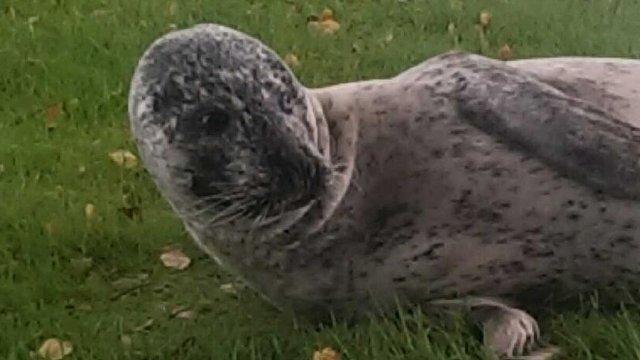Seal colony moves into ex-Cold War weapons testing site in Suffolk
- Published
The colony usually return to the same place to give birth each year.
A grey seal colony has established itself at a former Cold War weapons testing site on the Suffolk coast.
More than 130 grey seal pups have been born at Orford Ness, a remote shingle spit, this breeding season.
Rangers said the blubbery mammals have used the ex-military site as a breeding ground every year since 2021, following a reduction in visitor access because of the pandemic.
It is thought they spilled over from well-populated colonies in Norfolk.
Orford Ness was used as a military test site during both world wars and into the nuclear age, before the Ministry of Defence sold it to the National Trust in 1993.
Operations manager Glen Pearce said it was "really rare that a new colony sets up", calling it a "real success story".
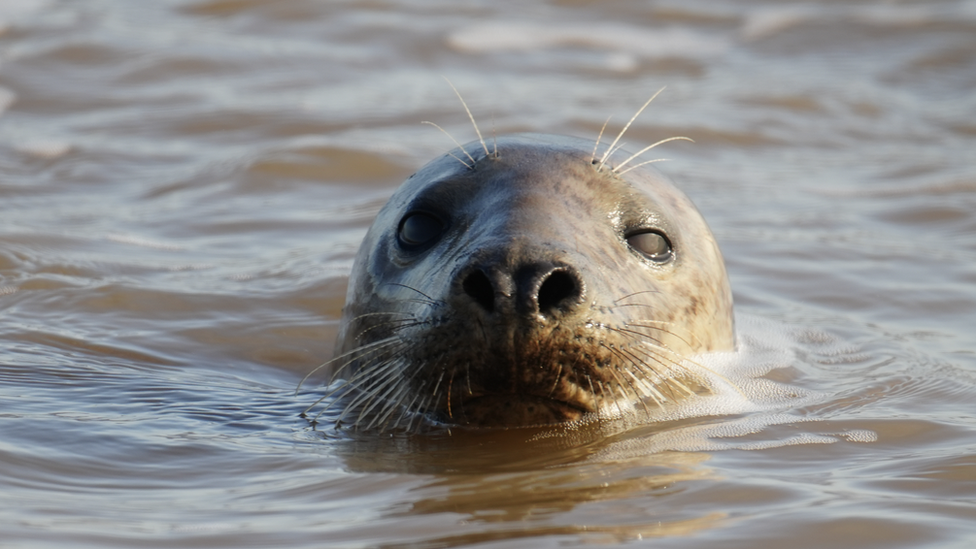
The first pup of the 2023 breeding season was born on 20 November
Suffolk and Essex coast countryside manager Matt Wilson, said: "We've kept it a secret for three years and that's been really hard work.
"Now we're ready to start telling the story because we're happy that this is going to be a good colony."
The colony, which will usually return to the same place to give birth each year, had 25 pups in its first breeding season and 65 in its second.
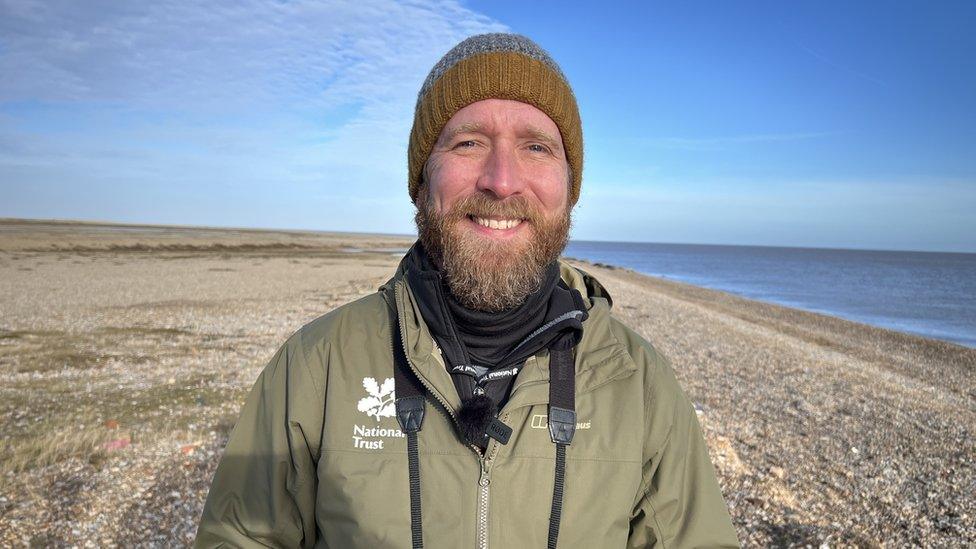
Matt Wilson said the experience has "been amazing"
Mr Wilson added: "We hope that the numbers will continue to go up.
"The pup numbers that we've had so far are very similar to those that were at Blakeney 20 years ago, and that's now the biggest colony in the UK."
Female grey seals, known as cows, can live for 30 to 35 years and have their first pups between the ages of three and five. They usually return to the same place each year to give birth.
Male grey seals live for about 20 to 25 years.
Mr Wilson said rangers have conducted weekly seal counts at Orford Ness since the start of October, averaging more than 250 adult seals per week, and sometimes up to 500.
The breeding season for grey seals runs from October to March, which is when Orford Ness is closed to visitors, and as a result disturbance has been kept to a minimum.
"Part of the reason we think the colony has established itself here is the remote nature of the site and lack of disturbance, and of course we want that to continue," said Mr Wilson.

Follow East of England news on Facebook, external, Instagram, external and X, external. Got a story? Email eastofenglandnews@bbc.co.uk , externalor WhatsApp 0800 169 1830
Related topics
- Published12 November 2021
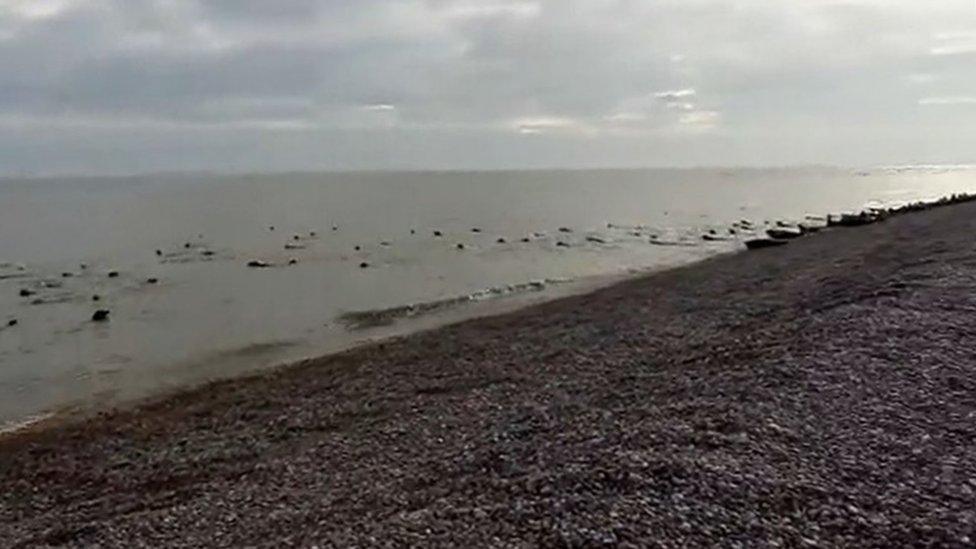
- Published24 January 2021
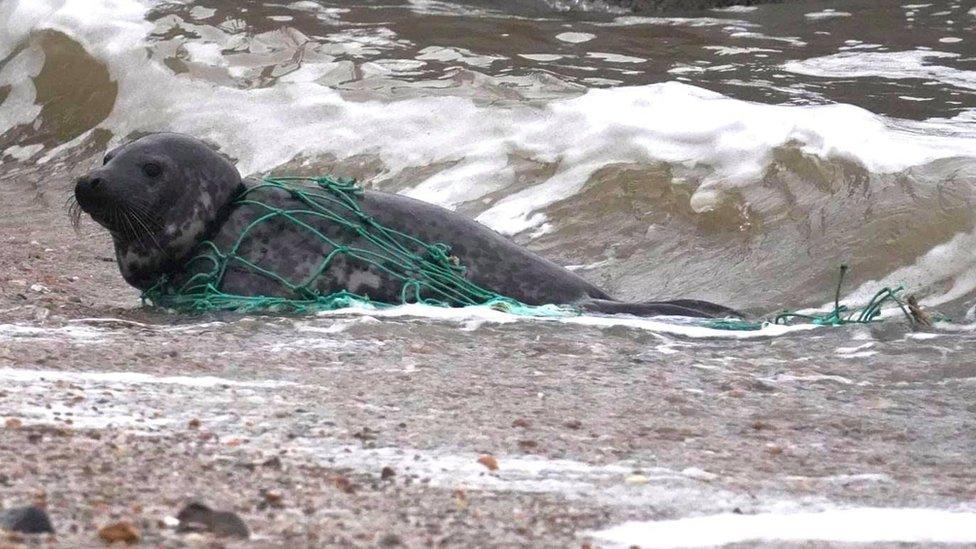
- Published7 October 2015
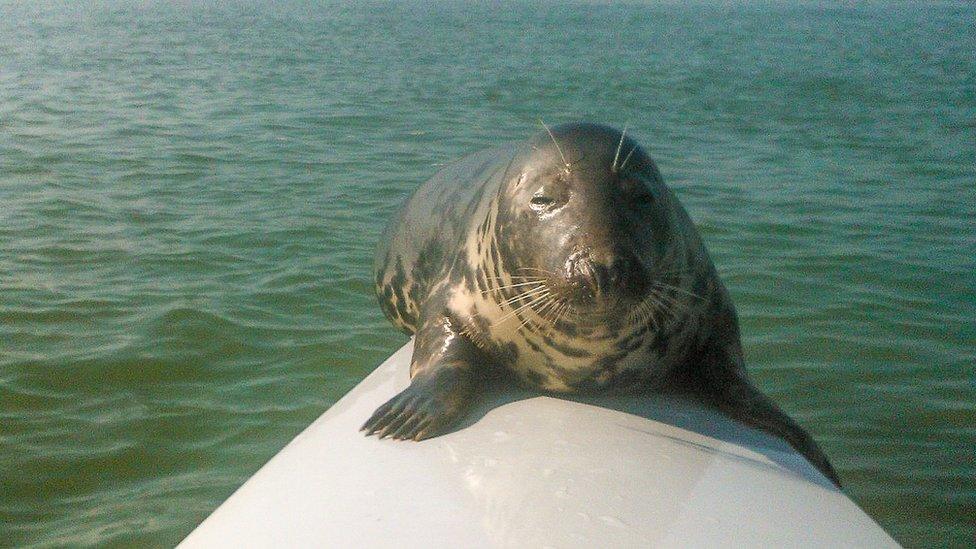
- Published6 November 2013
